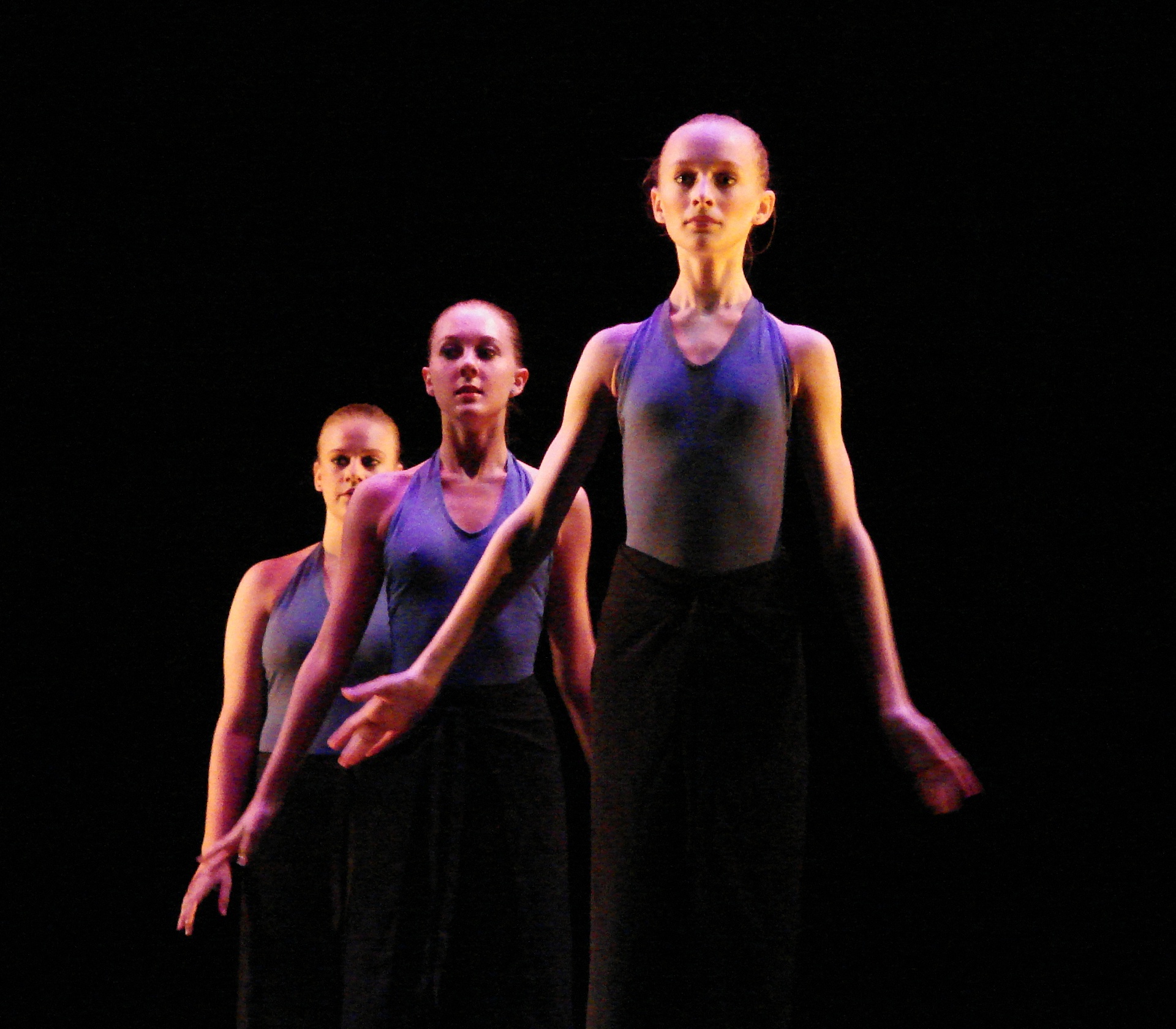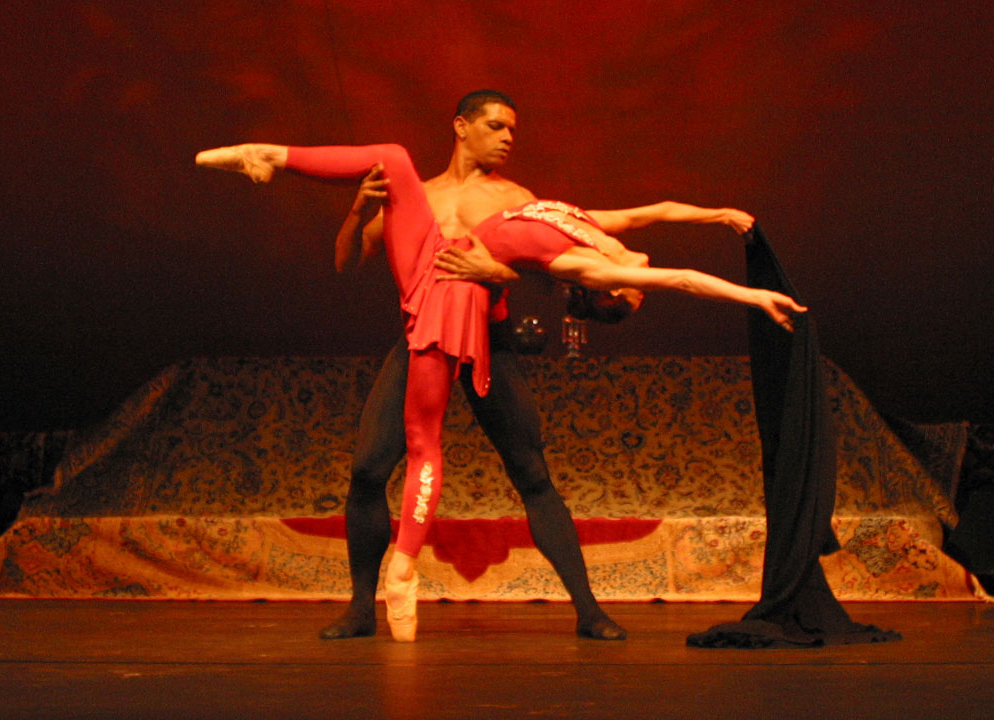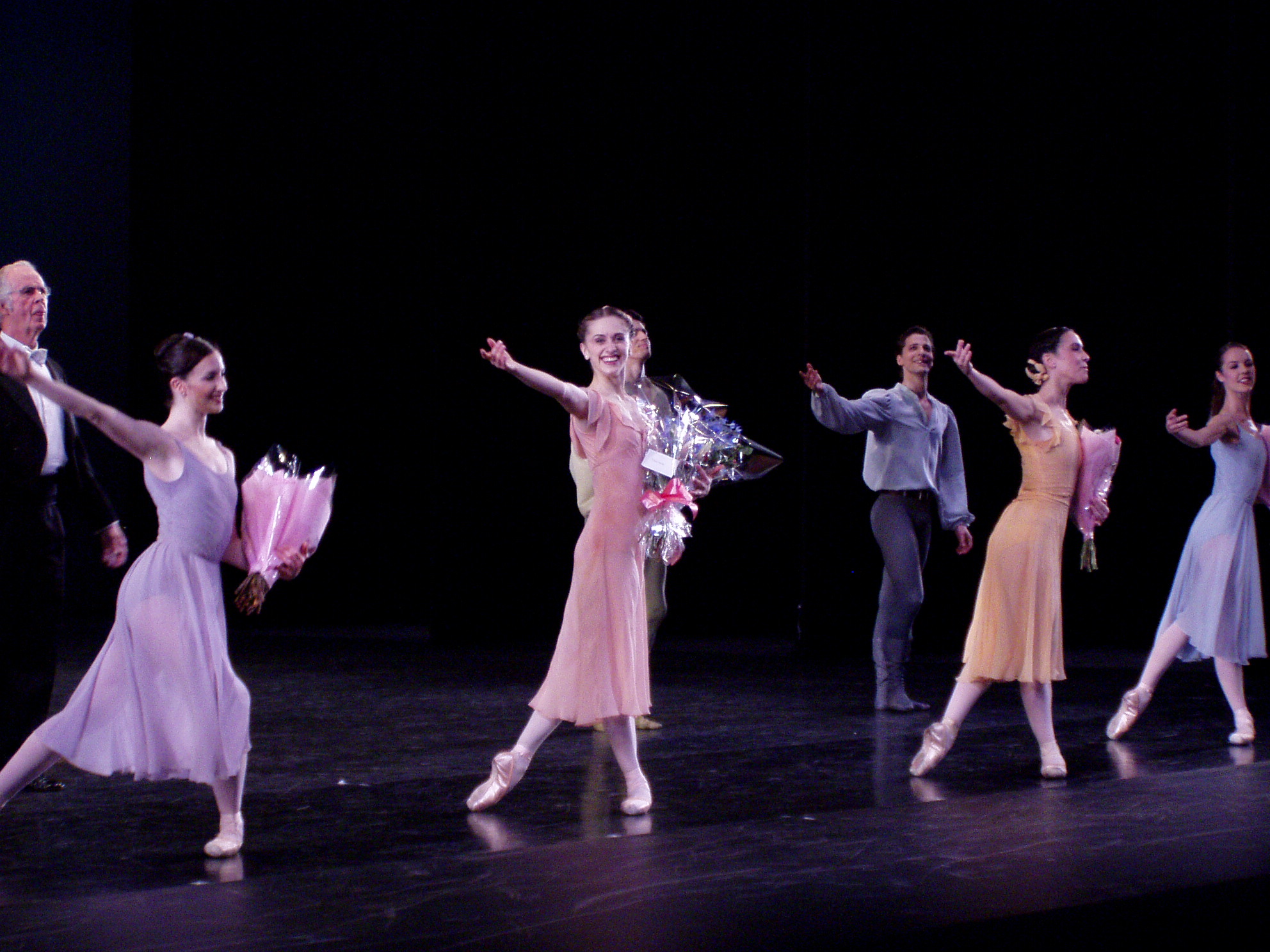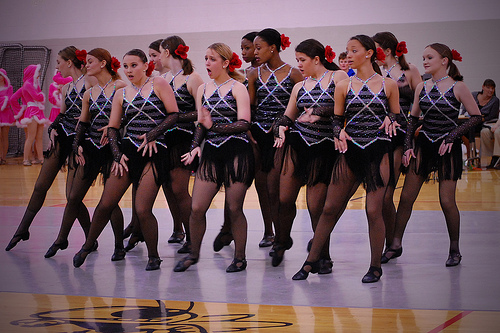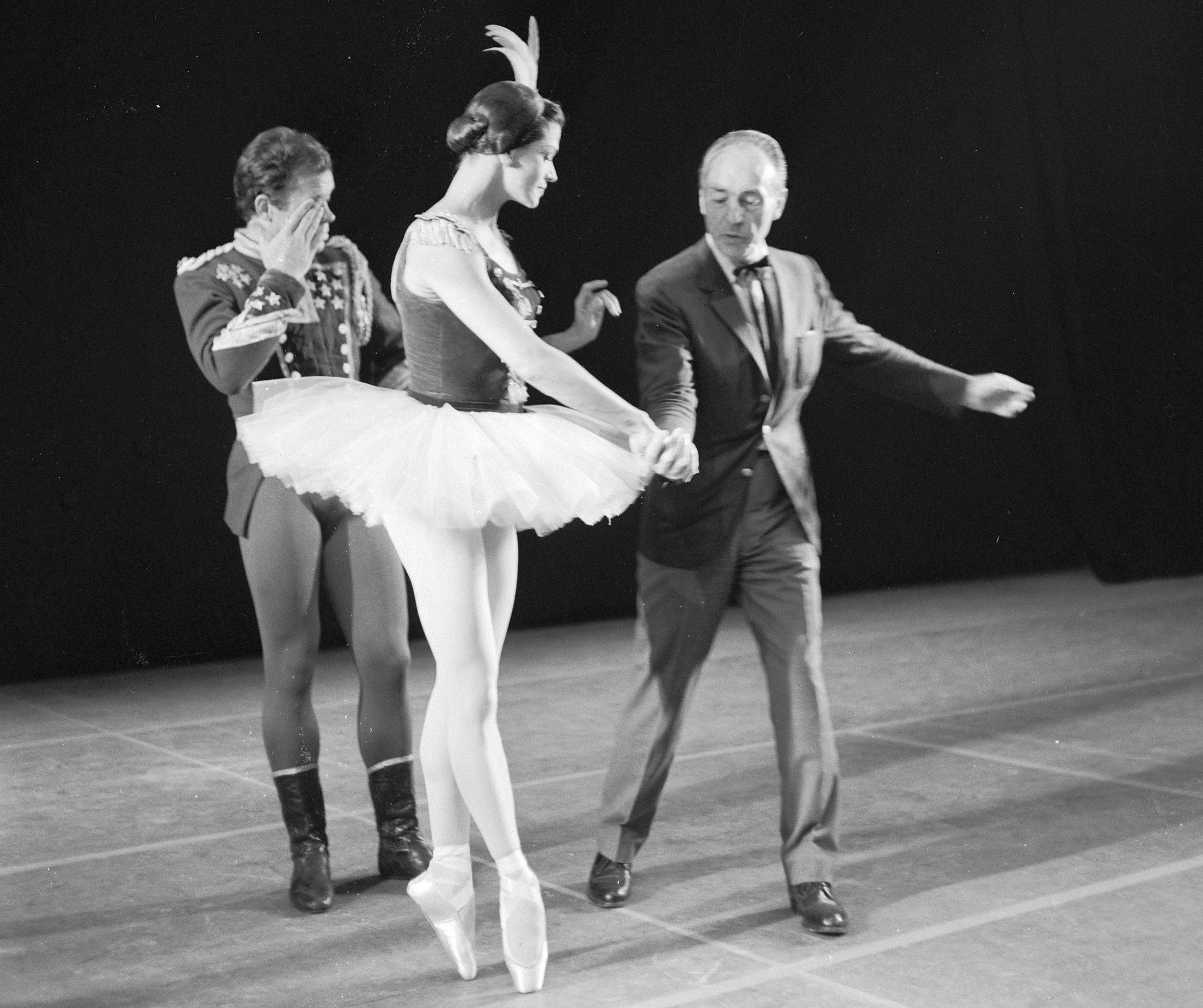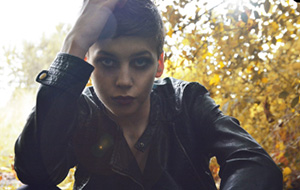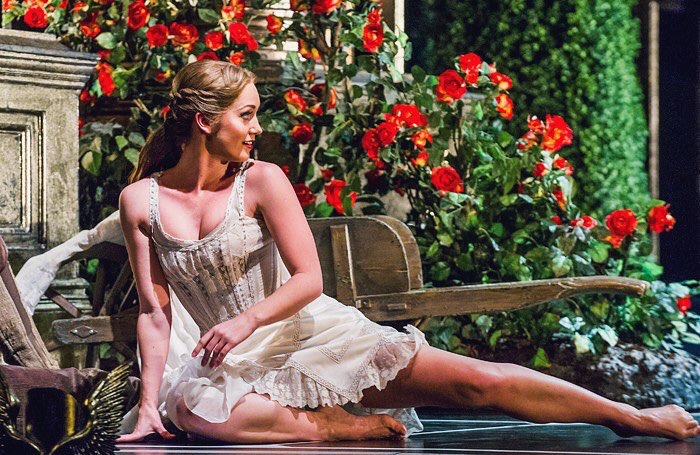 Originally from Australia, Ashley grew up in Nelson Bay where she first began dancing at the age of three. She trained in classical ballet, contemporary and jazz at the Marie Walton-Mahon Dance Academy in Newcastle, where she studied fulltime for two years. At 15 she was awarded the Royal Academy of Dance Solo Seal and competed as a semi-finalist in the Genée International Ballet Competition, held in Athens, Greece.
Originally from Australia, Ashley grew up in Nelson Bay where she first began dancing at the age of three. She trained in classical ballet, contemporary and jazz at the Marie Walton-Mahon Dance Academy in Newcastle, where she studied fulltime for two years. At 15 she was awarded the Royal Academy of Dance Solo Seal and competed as a semi-finalist in the Genée International Ballet Competition, held in Athens, Greece.
In 2005 she moved to the UK to attend Elmhurst School for Dance in association with the Birmingham Royal Ballet. She graduated in 2008 with a Diploma of Dance. She then spent two years dancing on cruise ships around the world with Royal Caribbean Productions based in Florida.
Now with Matthew Bourne’s New Adventures, Ashley has danced in Swan Lake (2009/10 and 2013/14 tours) and Cinderella (2010/11 tour) where she danced the title role. She then played Princess Sugar in the 20th anniversary tour of Nutcracker! (2011/12), and Aurora in the 2012/13 international tour of Sleeping Beauty. Most recently Ashley has performed the principal roles of Kim Boggs in Edward Scissorhands (2014/15) and Lana in The Car Man (2015).
Ashley is currently dancing Aurora in Matthew Bourne’s Sleeping Beauty at Sadler’s Wells.
Have you always wanted to perform?
Absolutely! I first got up on stage when I was about three or four and never looked back – I absolutely loved it!
How did you get into dance?
I think my mum just thought it would be cute to send me to dance lessons so I could wear pretty tutus! Then I guess the teachers saw some potential and it very quickly turned into to something much more serious for me.
Where did you train and what was it like?
I trained at the Marie Walton-Mahon Dance Academy in Newcastle, Australia until I was 15, then I moved to England to attend Elmhurst School for Dance which was in association with the Birmingham Royal Ballet. Both were excellent schools that made me the dancer I am today. Lots of hard work and long hours though.
What was a typical day like?
We would usually start around 8.30am with Pilates or warm up, then ballet class every morning at 9am. We would work until about 8pm that night, having five or six different classes through out the day. Pointe, repertoire, jazz, contemporary, pas de deux, solos, musical theatre, tap, choreography, rehearsals… It was quite full on! Plus we would sometimes have academic classes in the evening too.
When did you decide you wanted to dance professionally?
I always knew I wanted to be dancer… I never imagined I’d be anything else. But it was probably when I was about 15 and made the move from Australia to the UK that I actually really made that decision. It was such a huge commitment I had to be sure.
What is a typical day like now?
On a normal show day with New Adventures we are usually called at around 3pm for class. (11am if we have a double show day.) We have class everyday, either ballet or contemporary, for about an 1 hour and 15 minutes. We would then usually have rehearsal or notes with Matt. We have lots of note sessions so we always get feedback about the shows. It’s great because the show is always developing and changing… Keeping it fresh is very important.
After that we’d have an hour meal break and get ready for the show at 7.30pm. It’s nice to go for a drink after the show too, unwind and socialise with everyone. Plus you’re on such a high when you finish the show you’re not quite ready for bed even though it’s late. I’m such a night owl… I’ll usually go to bed around 2am.
What is dancing with New Adventures like?
Dancing for New Adventures is absolutely a dream come true for me. We do lots of shows and work very hard, but the repertoire and the company are just brilliant! There’s a real family vibe, we always look after each other and have a good time.
Matthew Bourne is known for creating ‘Dance Theatre’ and giving traditional ballets a modern twist. So it’s just incredible to be part of these amazing, unique shows… And the public loves them! We perform to a packed house almost every night and get to tour the world dancing, what could be better than that?!
Do you have any pre-show rituals?
I’m not superstitious or anything like that, so I don’t really have any ‘rituals’, but I have a fairly similar preparation each night. I’ll always start with a nice hot shower and use a lavender shower gel… I like to feel relaxed and calm before a show. My dressing room buddy Didi, and I like to watch trashy TV whilst we do our make up too. Shows like Made in Chelsea or Don’t Tell The Bride are a perfect background to put us in a good mood! Once I’ve got my make up done, wig on and been very tightly laced up into my Aurora corset… I’ll then go down to stage and do a good warm up or ballet barre. It’s the one thing I’m quite particular about before a show. I know exactly what I need to do for my body before stepping out on stage and I like to stick to it!
What has been your favourite dance moment to date?
My favourite has to be the first time I went on as Cinderella. I was the cover and it was the first time I’d ever got to perform a principal role. The love and support from everyone was just so overwhelming. You have those moments in life where you look back and remember yourself dreaming of this exact moment and you realise how far you’ve come. That’s what it was for me, a dream come true.
What’s the best thing about dance for you?
The best thing about dance, for me, is the joy and freedom it brings. There’s no better feeling than being on stage and completely losing yourself in the movement and music.
And the worst thing?
All the aches and pains! Dance can be very tough on your body. As Aurora I dance barefoot for the entire show and my feet constantly split and bleed. That’s the only bit that’s not so fun.
What is your advice for an aspiring performer?
Just to work hard, grow a thick skin and never give up on your dreams! Also, explore different genres of dance and performance, and be open to new things. There’s so many wonderful shows and companies out there, don’t restrict yourself. Learn as much as you can.
What’s next for you?
Well, I don’t really know for sure yet! But I love working with Matthew Bourne and New Adventures and still have a lot I want to do with the company. Matthew is choreographing a brand new show next year that I’d love to do. Being part of the creation would be very exciting! As long as I’m dancing though, I’ll be happy… Watch this space!
 The BBC recently announced the 2016 Shakespeare Festival, with big star names involved in the celebrations including David Tennant, Judi Dench and Benedict Cumberbatch. Tennant will host the programme, which will be broadcast during the weekend of Shakespeare’s birthday in April. Directed by Royal Shakespeare Company artistic director Gregory Doran, the cast will include – aside from Dench – Ian McKellen and Joseph Fiennes. With such stars’ names associated with the plans, the programme looks set to be a triumph.
The BBC recently announced the 2016 Shakespeare Festival, with big star names involved in the celebrations including David Tennant, Judi Dench and Benedict Cumberbatch. Tennant will host the programme, which will be broadcast during the weekend of Shakespeare’s birthday in April. Directed by Royal Shakespeare Company artistic director Gregory Doran, the cast will include – aside from Dench – Ian McKellen and Joseph Fiennes. With such stars’ names associated with the plans, the programme looks set to be a triumph.
